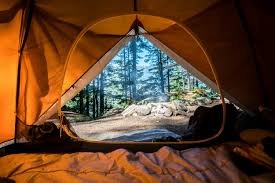Basement Camping: The Complete Indoor Adventure Guide
Basement camping is an indoor activity where families or individuals recreate the camping experience inside the basement of a house. Unlike outdoor camping, it eliminates weather risks, insect bites, and travel expenses. It is a safe, accessible, and creative way to enjoy the thrill of camping without stepping outside.
Why Choose Basement Camping?
-
Weatherproof experience – no worries about rain, snow, or heatwaves.
-
Safe for children – controlled environment for play and learning.
-
Budget-friendly – no need for travel, park permits, or camping ground fees.
-
All-season activity – perfect for summer nights or winter weekends.
-
Emergency training – practice survival and preparedness indoors.
How to Set Up Basement Camping
Step 1: Clean and Prepare the Space
-
Vacuum the basement.
-
Remove dust, mold, or dampness.
-
Lay soft mats or carpets.
Step 2: Choose the Right Tent
-
Dome tents fit well in medium basements.
-
Pop-up tents are quick and portable.
-
Kids’ play tents add a playful theme.
Step 3: Bedding Setup
-
Use sleeping bags for authenticity.
-
Air mattresses for comfort.
-
Throw blankets for cozy warmth.
Step 4: Lighting and Ambience
-
String fairy lights across walls.
-
Place battery-powered lanterns.
-
Use a star projector for night-sky simulation.
Step 5: Food and Snacks
-
Prepare indoor s’mores with microwaves.
-
Grill sandwiches on an electric griddle.
-
Keep trail mix, popcorn, and fruit handy.
Safety Checklist for Basement Camping
-
Ensure proper ventilation.
-
Avoid open flames or gas stoves.
-
Keep a first aid kit nearby.
-
Use flameless candles instead of real ones.
-
Supervise children near electrical appliances.
Fun Activities During Basement Camping
-
Board Games and Cards – Monopoly, Uno, Scrabble.
-
Storytelling Circle – share ghost stories or family tales.
-
Scavenger Hunt – hide small objects across the basement.
-
Craft Time – make paper lanterns or origami animals.
-
Movie Night – project a camping-themed film on the wall.
-
Music Jam – use ukuleles, guitars, or hand drums.
-
Survival Drills – practice flashlight navigation or ration planning.
Educational Benefits of Basement Camping
-
Problem-Solving Skills – setting up tents indoors.
-
Teamwork – family members collaborate.
-
Creativity – decorating spaces and inventing games.
-
Science Learning – teaching about stars, maps, and wildlife through apps.
-
Preparedness – training for emergencies.
Basement Camping vs Outdoor Camping
| Feature | Basement Camping | Outdoor Camping |
|---|---|---|
| Weather Protection | ✅ Always safe | ❌ Weather risks |
| Bugs & Insects | ✅ None | ❌ Common issue |
| Travel Required | ❌ Not needed | ✅ Required |
| Equipment Cost | ✅ Lower | ❌ Higher |
| Learning Experience | ✅ Basic survival | ✅ Advanced survival |
| Comfort Level | ✅ High | ❌ Moderate |
Best Basement Camping Experience
-
Set a theme: jungle, desert, or mountain adventure.
-
Use glow sticks for a magical effect.
-
Play ambient sounds of rain or forests.
-
Create a “campfire” with red/orange LED lights.
-
Assign each family member a role: chef, storyteller, or navigator.
FAQs About Basement Camping
Q1: Can basement camping replace outdoor camping?
Basement camping cannot fully replace outdoor camping, but it provides a safe and convenient alternative for practice, fun, and family bonding.
Q2: Is basement camping safe for toddlers?
Yes, basement camping is safe for toddlers if the area is clean, free of sharp objects, and supervised by adults.
Q3: What foods are best for indoor camping?
Microwave s’mores, sandwiches, instant noodles, popcorn, and fruit skewers are great options.
Q4: How do I make a fake campfire indoors?
Use tissue paper shaped like flames, surround it with stones, and light it with a battery-powered lantern or LED candles.
Q5: Can basement camping help with emergency readiness?
Yes, it allows families to practice using flashlights, backup food storage, and first aid kits in a safe environment.
Q6: Do I need camping gear for basement camping?
Not necessarily. You can use blankets, chairs, and pillows instead of tents and sleeping bags.
Q7: What themes work best for basement camping?
Popular themes include jungle safari, Arctic exploration, pirate adventure, and outer space expedition.
Learn More: Camouflage Tarpaulins (Tarnplanen) – The Ultimate Guide for Outdoor, Hunting & Everyday Use
Conclusion
Basement camping is more than an indoor pastime. It is a family adventure, an educational activity, and a creative way to bond without stepping outside. With minimal setup, safe practices, and imaginative activities, it transforms a basement into a world of exploration.
Whether for a rainy day, a winter night, or an emergency preparedness drill, basement camping remains an affordable and enjoyable alternative to outdoor camping.


